Writing

Julia Vinograd
Julia Vinograd was a street poet and the author of 68 slender volumes of verse widely admired for their vivid portraits of bohemians and street people in twentieth-century Berkeley, California. Her writing, which evolved in café open mic readings, is notable for its oratorical clarity, emotional warmth, and surreal imagination.
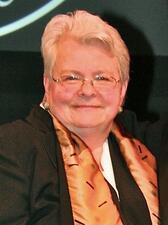
Paula Vogel
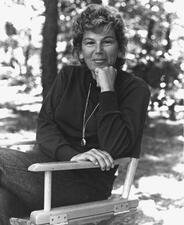
Miriam Dworkin Waddington
Miriam Dworkin Waddington was a distinguished and pioneering Canadian poet and literary critic. Her original poetry included many explicit references to her Jewish secular outlook, and other poems were infused with a commitment to social justice that drew on that same source. Impatient with the Canadian “canon” of her time, she introduced to wider audiences the works of A.M. Klein and poets writing in Yiddish with her literary criticism and her translations.
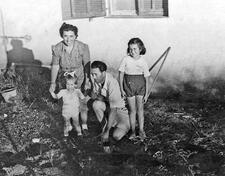
Yona Wallach
Regarded by many of her friends and colleagues as the most important among the young Israeli poets of the 1960s, Yona Wallach has had a profound effect on Israel’s cultural life ever since her works began to appear in periodicals in the early 1960s, despite her early death from cancer in 1985.
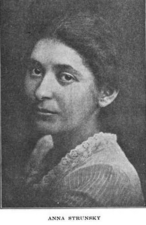
Anna Strunsky Walling
Anna Strunsky Walling was a Russian-born author, journalist, lecturer, and social activist. She produced several novels and memoirs and was involved in a number of political organizations, including the Socialist Labor Party and the National Association for the Advancement of Colored People, which she and her husband helped found.

Charlotte Wardi
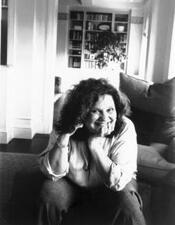
Wendy Wasserstein
In 1989, Wendy Wasserstein won the Pulitzer Prize for The Heidi Chronicles and was the first woman playwright to win a Tony Award. After graduating from the MFA program at the Yale School of Drama, in which she was the only woman, Wasserstein wrote countless dramas, three musicals, various comedy skits for television, and a series of essays published in the New Yorker, Esquire, and Harper’s Bazaar.
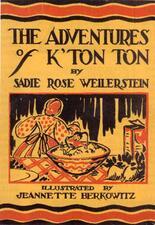
Sadie Rose Weilerstein
An award-winning children’s author and the creator of the beloved Jewish story-book hero K’tonton, Sadie Rose Weilerstein’s stories for Jewish children in English heralded the beginning of a new genre. Weilerstein published the first version of The Adventures of K’tonton in 1935, and by 1964 she had published eleven books.
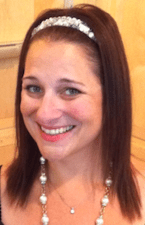
Jennifer Weiner

Miriam Weiner
Through her genealogical program Routes to Roots, Miriam Weiner helped Jews access historical records that had survived the Soviet suppression of information throughout Eastern Europe.
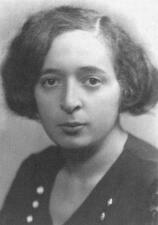
Trude Weiss-Rosmarin
Trude Weiss-Rosmarin made great advances for women’s involvement in Jewish life through the schools she created and her editorship of the Jewish Spectator. A dynamic speaker backed by broad-ranging Jewish scholarship and a prodigious memory, she was a popular lecturer at synagogues and Jewish centers across the United States and a foremost critic of American Jewish life and institutions.
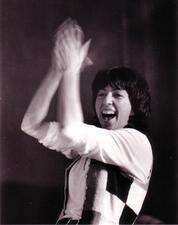
Naomi Weisstein

Pauline Wengeroff
Pauline Wengeroff was the author of an extraordinary two-volume work in German, Memoirs of a Grandmother: Scenes from the Cultural History of the Jews of Russia in the Nineteenth Century. First published in 1910, the memoir richly depicts traditional Jewish society in Russia, its unraveling during the nineteenth century, and the devastating impact this dissolution had on families and especially on women.
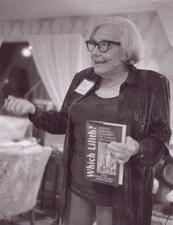
Henny Wenkart
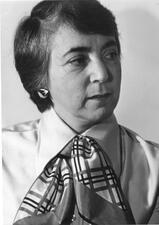
Barbara Mayer Wertheimer
Barbara Mayer Wertheimer gave a voice to the voiceless, empowering thousands of women union workers through her initiatives in the late 20th century. Wertheimer established the trade union women’s studies program in 1972 and developed several other academic programs, giving working women access to education and the ability to interact and organize with other union workers.
Mildred Wertheimer
Mildred Wertheimer was a scholar of international relations and political science in the early twentieth century. In the 1920s, few women worked in the field of foreign policy, and even fewer achieved her level of scholarship and renown.
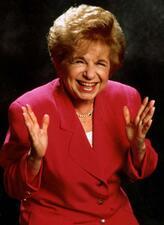
Ruth Westheimer
Ruth Westheimer, who lost her entire family in the Holocaust, served in the Haganah, and received her Ed.D. from Columbia University, was an unlikely candidate for the role of host of a cheerful talk show about sex. However, her celebration of human sexuality, derived from Orthodox Judaism, made her an influential and highly successful proponent of joyful, responsible sex from the 1980s into the third decade of the twenty-first century.
Ruth Whitman
Poet Ruth Whitman was known for her acclaimed translations of Yiddish poetry, as well as for her own autobiographical work. She wrote a series of narrative poems in the voices of women from the past, including Lizzie Borden, Tamsen Donner, Hanna Szenes, and Hatshepsut, the only woman pharaoh in ancient Egypt. In these, she explored problems with sexual identity, love, work, and motherhood.
Bertha Wiernik
Writer and translator Bertha Wiernik is remembered by her many adaptations of Yiddish literature and dramatic works. Working closely with charitable societies throughout her career, Wiernik helped spread Jewish literature throughout New York City in the early 20th century.

Annette Wieviorka
Annette Wieviorka (b. 1948) is a major French historian of the Holocaust. Her work highlights the specificity of the Shoah in the context of Nazi and Vichy crime generally.

Cora Wilburn
Cora Wilburn was one of the most prolific American Jewish women writers of her time. Much of her work appeared in secular and Spiritualist publications, but during her final decades she published poetry in Jewish publications. Her autobiographical novel, Cosella Wayne, published serially in 1860, is the first coming-of-age novel to depict Jews in the United States.
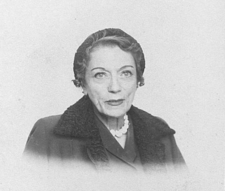
Thyra Samter Winslow
Short story writer, novelist, and screenwriter Thyra Samter Winslow was well known for her stories and articles published in The Smart Set, American Mercury, and The New Yorker. Her writing frequently dealt with themes of small-town life, assimilation, and complicated images of women in unhappy marriages.

Shelley Winters
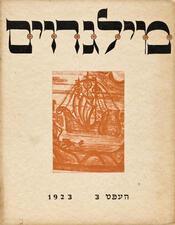
Rachel Wischnitzer
Rachel Wischnitzer was a pioneer in the fields of Jewish art history and synagogue architecture. Her wide-ranging scholarship included books, articles, book reviews, and exhibition catalogs on ancient, medieval, and modern Jewish art. The breadth of her contributions to the history of Jewish art and architecture is exemplified in her lifelong dedication to her work.

Adele Wiseman
Adele Wiseman was one of Canada’s most highly regarded writers of the second half of the twentieth century. She is best known for The Sacrifice (1956) and Crackpot (1974), her two groundbreaking novels that explore Jewish life in Canada. Both are set in Winnipeg’s insular North End, reveal her interest in characters who challenge normative behavior, and affirm Wiseman’s belief in community.


